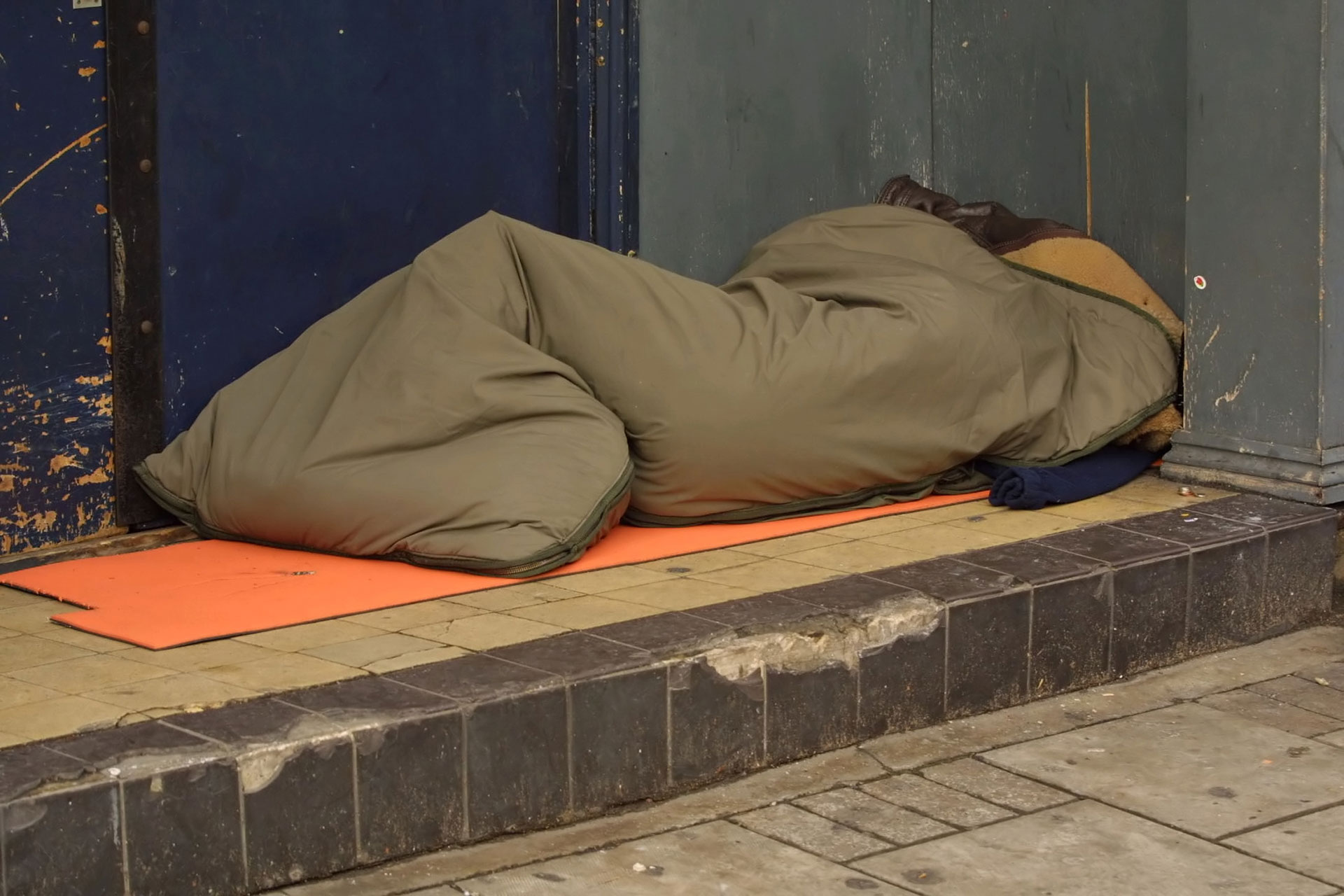London and north-west England saw the highest number of deaths with the 144 recorded in London accounting for 18.5 per cent of the total while the 126 in the North West made up 16 per cent of the overall count.
Support Big Issue vendors this Christmas by gifting a subscription
“We must remember that behind these statistics are our fellow citizens driven to the darkest place imaginable,” said Museum of Homelessness co-founder Jess Turtle in response to the official figures. “We and many others are bitterly frustrated and angry with the continuing increase in preventable deaths of people who are homeless; it is a damning indictment of our society.”
The number of people who die while homeless has only been counted in recent years.
The groundbreaking Dying Homeless project by the Bureau of Investigative Journalism led the way, working with journalists, campaigners and charities to crowdsource statistics.
The project found 796 people had died without a stable home across the UK in just 18 months before the Bureau handed over the project to the Museum of Homelessness (MOH) in March 2019. The Big Issue contributed to the project and Milton Keynes vendor Fabian Bayet, who died in 2018 aged just 48, was featured in Bureau reporter Maeve McClenaghan’s book recounting the investigation No Fixed Abode.
Advertising helps fund Big Issue’s mission to end poverty
MOH have continued the count and run a memorial site that has tracked 1,469 deaths since October 2017.
Turtle added: “In our work on the Dying Homeless Project we research the human stories behind the statistics and we see all too clearly the impact of a decade of cuts to basic services such as mental health support.
“We have, therefore, formed the Dying Homeless Coalition to take action, with more than 50 people from across the UK signed up for the first coalition meeting. There has been enough talk, we need real action to save lives.”
Rick Henderson, chief executive of Homeless Link, added: “This year, the pandemic saw the Government treat homelessness as a health issue, bringing people in to emergency accommodation, but the truth is that homelessness has always been a health emergency.
“We urge government to build on the excellent steps taken recently, improving access to health services and solving the structural causes of homelessness, including poverty and the inadequate welfare system, to end rough sleeping and homelessness for good.”
Paul Noblet, Centrepoint’s head of public affairs, said that the charity feared the Covid-19 pandemic could mean homeless deaths continue to rise next year.
Advertising helps fund Big Issue’s mission to end poverty
“It is deeply troubling to see this latest increase in an already shameful statistic,” said Noblet. “In 21st century Britain, it is simply unacceptable that people are dying on our streets because they have no home and too often no hope.
“What is even more troubling is that the impact of covid-19 may well mean that the figures for 2020 are even worse. The government have rightly put more money into tackling rough sleeping this year, but these figures show that even more funding is needed over the long-term to get this national tragedy under control.”
The Office for National Statistics began its own official count at around the same time as The Bureau and revealed the first statistics in December 2018 showing that an estimated 597 people died in 2017.
The second count found 726 people had lost their lives in 2018 – a 22 per cent rise in just a year and the highest increase in six years according to ONS, who have compiled homeless deaths back to 2013.
The ONS released figures in July showing the number of homeless deaths related to Covid-19, revealing that 16 people had died by July. However, statisticians warned at the time that this figure was likely to be a significant underestimate.
Scotland is the most recent UK country to begin an official homeless deaths count. The National Records of Scotland released their first figures in February 2020, showing that 195 people who died without a home in 2018.
Advertising helps fund Big Issue’s mission to end poverty
Both the National Records of Scotland and the Office for National Statistics rely on a similar method to count the deaths. The statistics bodies use multiple search strategies to identify deaths among death registration records before using statistical modelling to allow for likelihood of more deaths of homeless people being present in the data but not identified.
ONS consider their figures to be experimental at this stage and are working with local authorities and charities, academics, and the General Register Office to develop them, though this work is on hold due to the Covid-19 pandemic.









